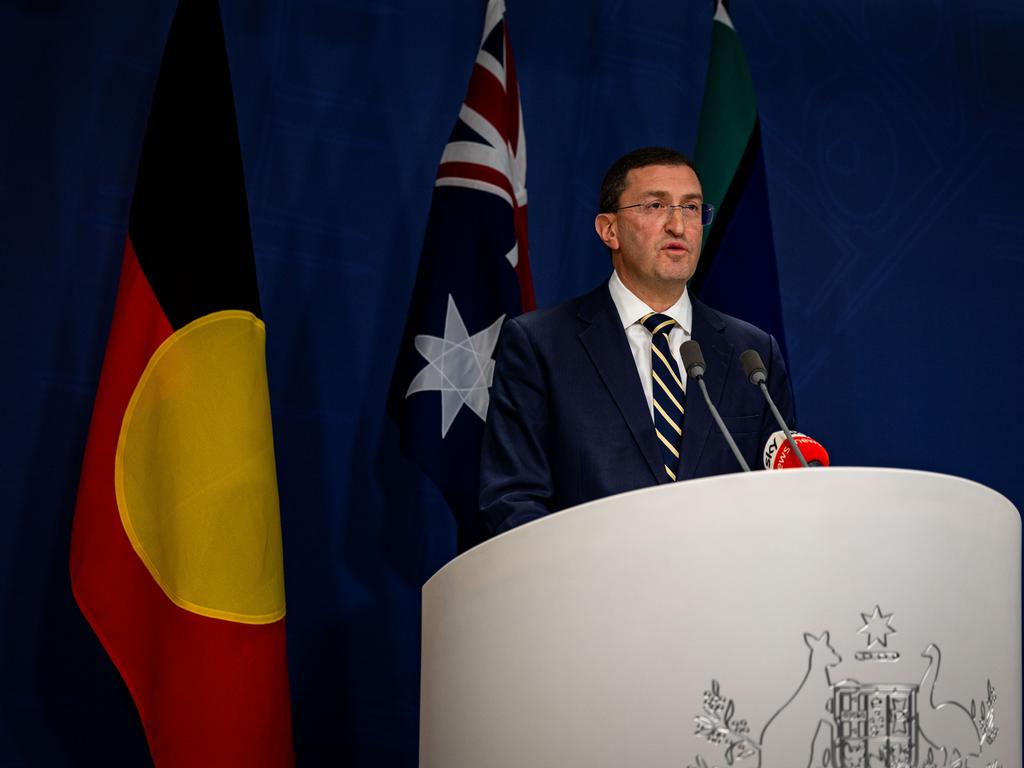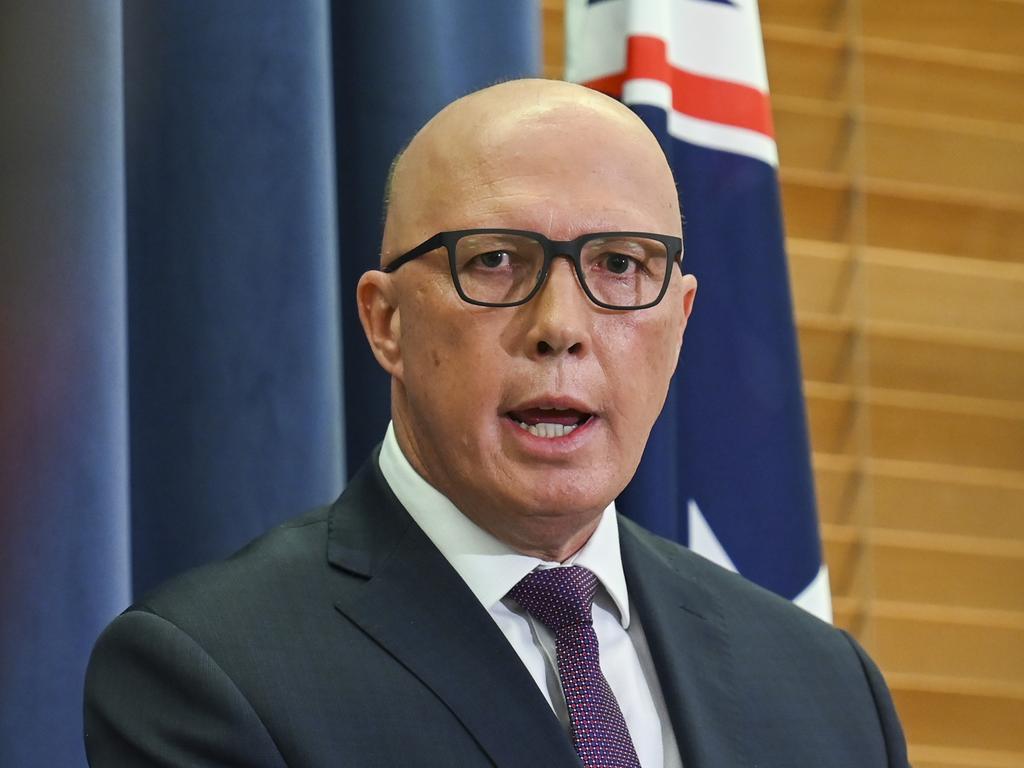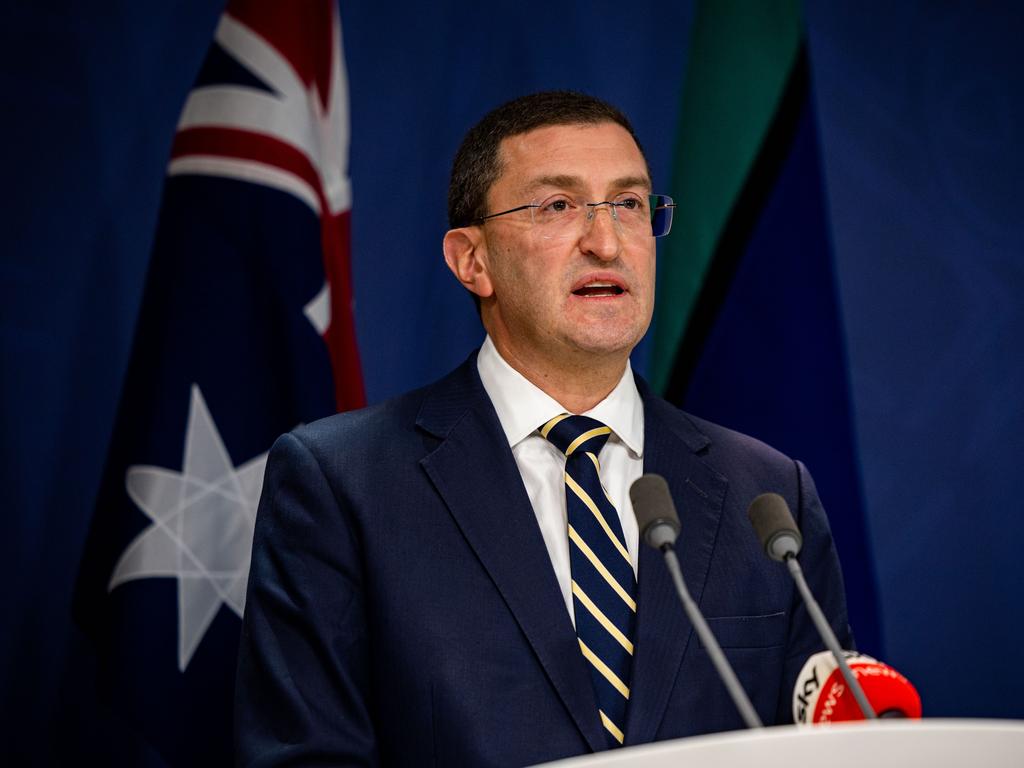Julian Leeser resigned because his position on the Indigenous voice to parliament was confused and untenable


Given what is at stake, the Liberal Party needs a more coherent constitutional conservative as opposition legal affairs spokesperson. Being a decent chap is not enough.
Resigning from shadow cabinet on Tuesday, Leeser said he was standing up for what he believed and resigning on a “point of principle”. Looking back over his involvement in the voice, it’s not easy to locate which principle Leeser is standing up for.

Very early on Leeser, along with Greg Craven, jumped aboard the voice train which, apparently unbeknown to them, was being driven by people who had in mind a completely different destination. The best face they can put on developments is that they jumped off before many thought it would crash. In truth, they still won’t disembark.
In 2017, Craven was on the record as supporting a voice to parliament. Leeser, along with Damien Freeman, founded Uphold and Recognise to promote two causes: to uphold the Constitution and to recognise Indigenous people. So far, not bad.
While there is much friction about what happened after, it’s common knowledge that Leeser, Freeman, Craven and Noel Pearson met in Craven’s office at the Australian Catholic University and agreed on a voice. According to Craven, “one thing was carved in fluorescent stone. We would never accept any model that involved conferring power on the judges.”
If Craven and Leeser thought their tryst with Pearson would help secure political bipartisanship to ensure a successful referendum, their naivety morphed into madness once they appeared to abandon constitutional conservatism.

After the Garma Festival last year, constitutional conservatives couldn’t possibly stay aboard a voice train that, via a new chapter in the Constitution, created an untested, poorly explained, race-based body with privileged access to parliament and all arms of executive government, with a final destination of co-government.
After Anthony Albanese released that first set of proposed words for the voice, Craven and Leeser didn’t sound like constitutional conservatives. Leeser barely said a word yet the constitutional implications were profound. Craven chose to insult lawyers who raised serious questions about the inconsistency between those words and the assurance in the Calma-Langton report that the voice would be non-justiciable.
After Garma, many wondered whether Craven and Leeser were intended to be “useful idiots” from the start, to be dumped by the radical voice activists when no longer needed.
What was clear after Garma – and what these two lawyers should have known – is that the group of legal academics behind the Garma wording have long had big and radical ambitions about what a constitutional voice should look like. If Craven and Leeser knew that, too, they didn’t let on.
Had they helped Australians to understand then what many know now, they would have made important contributions as constitutional conservatives.
The voice was, and is, intended to reach into every area of policy. It will require a huge, top-heavy bureaucracy. It will hogtie the running of good government, and the High Court will have the final say over all of this.
None of this is a surprise. A group of vocal, and influential voice academics have long held the view that the accepted legal principle laid out by the High Court in Coe v Commonwealth, that the Australian Crown held sole and exclusive sovereignty in Australia, was wrong. Sovereignty, they have said repeatedly, was never ceded and is at most shared between Australia and its Indigenous people.
In a process led by law professor Megan Davis, this belief was enshrined in the Uluru Statement from the Heart. Advocates of this co-sovereignty model knew exactly how the voice could be used to create a form of co-government. It wasn’t a secret. They wrote about it.
This was no modest tweak to the Constitution. This model was laid out most recently in a paper written by legal academics led by Gabrielle Appleby, who works closely with Davis at the University of NSW.

They went for broke with a co-sovereignty model of the voice and won, despite last-minute wobbles from Attorney-General Mark Dreyfus. This current version is hardly different from the Garma wording, retaining two features critical to creating a new and radical co-governance system in Australia.
The first is the voice’s constitutional right to make representations to executive government. The second feature sought and won by the radicals is a key role for the courts with parliamentary supremacy tossed aside.
These two factors lead to a massive transfer of power from parliament and executive government to the courts, thus cementing constitutional power in the voice. It is true that in recent weeks, Craven and Leeser have raised concerns. But where on earth have these so-called constitutional conservatives been?
Even more troubling is what they are planning to do at the referendum. Craven says he will vote Yes even though under the current model “frustrating legal challenges will multiply like cockroaches”.

Leeser’s position is even more incoherent. Leeser put forward a model at the National Press Club last week to delete the second sentence of the proposed amendment, thereby vesting the power of design of the voice’s remit and powers more clearly in parliament. This doesn’t alter the fact a body with special group right privileges not shared by ordinary Australians will be entrenched in our Constitution.
Though Leeser, like Craven, may have started as a constitutional conservative on the voice, he cannot lay claim to that title any more. Not after Garma. Particularly not after this week, when Leeser conceded that even if his desired model never saw the light of day, he would campaign for a Yes vote for the government’s model.
Leeser, like Craven, appears so emotionally invested in the voice that he will vote for it no matter whether it effectively installs co-government instead of our current single sovereignty model. That’s not standing up for principle. It’s giving in to a vibe.
Some of us remember the Constitutional Convention in 1998 when Leeser described the republican push as “the zenith of a generation who value style over substance, to whom touchy-feely, kumbaya motherhood notions are more important than results”.
How times change.






Julian Leeser had no choice but to resign this week from the frontbench of the Liberal Party. Not just because shadow cabinet ministers will not get a conscience vote on the voice. Leeser had to leave because his position on the voice to parliament has been confused and untenable for too long.